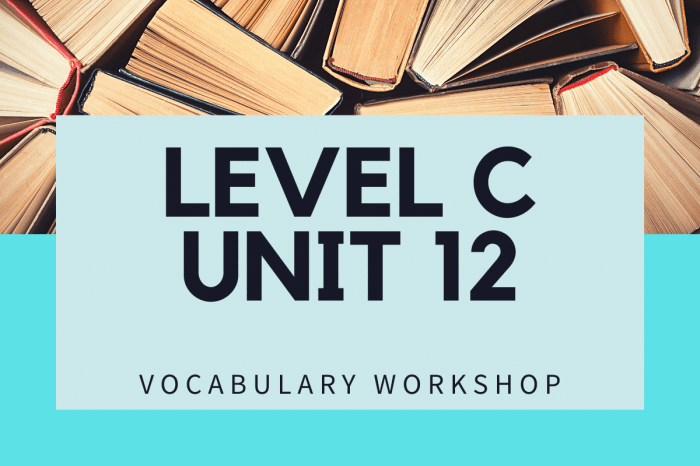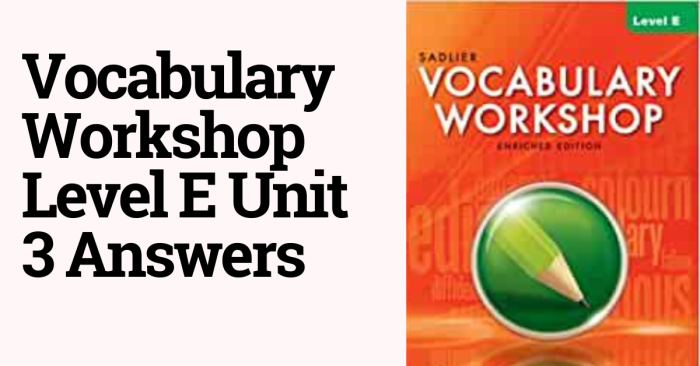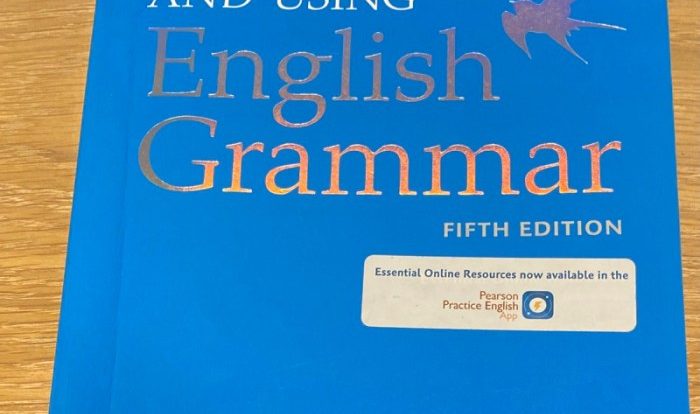Vocabulary workshop level c unit 3 choosing the right word – Embark on a linguistic journey with Vocabulary Workshop Level C Unit 3: Choosing the Right Word. This comprehensive guide delves into the nuances of language, empowering you to expand your vocabulary and enhance your communication skills.
Delve into the intricacies of synonyms and antonyms, unravel the impact of connotation and denotation, and explore the significance of word families. Discover the power of context clues and unravel the transformative role of prefixes and suffixes in shaping word meanings.
Vocabulary Workshop Level C Unit 3: Choosing the Right Word: Vocabulary Workshop Level C Unit 3 Choosing The Right Word

Unit 3 of the Vocabulary Workshop Level C focuses on enhancing vocabulary through various techniques. This article will delve into the key concepts covered in the unit, including synonyms, antonyms, connotation, denotation, word families, context clues, prefixes and suffixes, figurative language, and formal and informal language.
Synonyms and Antonyms
Synonyms are words that have similar meanings, while antonyms are words that have opposite meanings. Understanding synonyms and antonyms can expand vocabulary and enhance word choice.Examples:
Synonym
happy, joyful, delighted
Antonym
sad, sorrowful, depressedUsing synonyms and antonyms can add variety and precision to writing and speaking.
Connotation and Denotation
Connotation refers to the emotional or subjective associations associated with a word, while denotation refers to its literal meaning. Connotation can significantly impact word choice.Examples:
Connotation
“home” evokes feelings of comfort and warmth
Denotation
“home” refers to a place of residenceUnderstanding connotation and denotation allows writers to convey specific emotions and perspectives.
Word Families
Word families are groups of words that share a common root word. Understanding word families can help expand vocabulary by introducing related words.Examples:
Root word
“struct”
Word family
construct, structure, destroyWord families provide a systematic approach to vocabulary building.
Context Clues
Context clues are hints within a text that provide information about the meaning of an unfamiliar word. Understanding context clues can enhance comprehension.Types of context clues:
Definition
The meaning of the word is explicitly stated.
Example
The word “perspicacious” means having keen insight.
Synonym
The meaning of the word is implied through a synonym.
Antonym
The meaning of the word is implied through an antonym.Using context clues improves reading comprehension and vocabulary acquisition.
Prefixes and Suffixes, Vocabulary workshop level c unit 3 choosing the right word
Prefixes and suffixes are affixes that can change the meaning of a word. Understanding prefixes and suffixes can help decode unfamiliar words.Common prefixes in Unit 3:
dis-
not, opposite
un-
not, opposite
re-
again, backCommon suffixes in Unit 3:
-
-ly
adverbial form
-ment
result of an action
-tion
action or process
Prefixes and suffixes provide a structured approach to vocabulary expansion.
Figurative Language
Figurative language uses words in a non-literal way to create a specific effect. Understanding figurative language can enhance literary analysis and appreciation.Examples:
Metaphor
“Life is a journey.”
Simile
“Her eyes sparkled like diamonds.”Figurative language adds depth and imagery to writing.
Formal and Informal Language
Formal language is used in academic, professional, and official settings, while informal language is used in casual conversations and everyday writing. Understanding the appropriate use of formal and informal language is essential for effective communication.Examples:
Formal
“The meeting will commence at 10:00 AM.”
Informal
“Let’s meet up at 10:00.”Using the appropriate language in different contexts ensures clarity and effectiveness in communication.
Vocabulary Games and Activities
Vocabulary games and activities can make learning enjoyable and engaging.Example game:
Word Association
Have students brainstorm words related to a specific topic, such as “synonyms for ‘happy’.”Games and activities provide an interactive and memorable way to reinforce vocabulary learning.
FAQ Overview
What are the key concepts covered in Vocabulary Workshop Level C Unit 3?
Synonyms, antonyms, connotation, denotation, word families, context clues, prefixes, suffixes, figurative language, and formal/informal language.
How can I improve my vocabulary using this guide?
By understanding the concepts presented, practicing exercises, and engaging in vocabulary games and activities.
What are the benefits of expanding my vocabulary?
Enhanced communication skills, improved reading comprehension, and increased confidence in expressing ideas.


